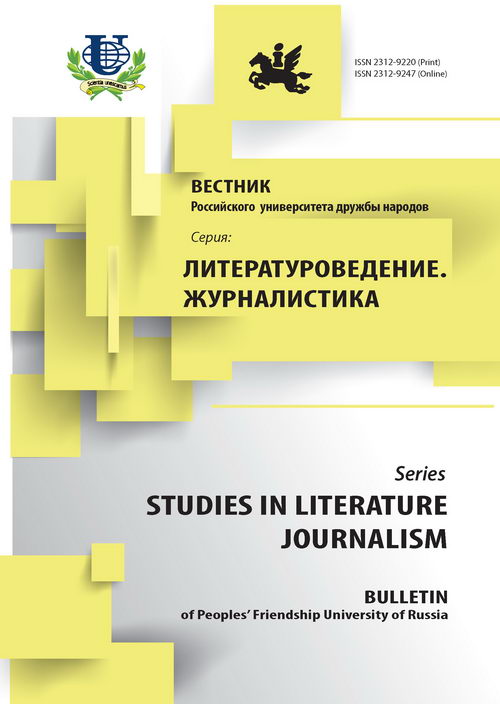IMAGE OF MOSCOW IN RUSSIAN LITERATURE OF THE EARLY TWENTY-FIRST CENTURY
- Authors: Selemeneva MV1
-
Affiliations:
- Moscow Metropolitan Governance University
- Issue: No 4 (2015)
- Pages: 93-103
- Section: ARTICLES
- URL: https://journals.rudn.ru/literary-criticism/article/view/13355
- ID: 13355
Cite item
Full Text
Abstract
The article is devoted to the poetics of the incarnation of the image of Moscow in the Russian literature of the beginning of the XXI century based on prose by Sergei Shargunov, Roman Senchin, Olga Slavnikova. The author refers to the history of the formation of the “Moscow text” and reveals in prose by contemporary authors as following the tradition of the image of Moscow as the preference of new artistic practices, including the decline in the status of traditional sacred loci of the “Moscow text”, the dominance of urban images, devoid of historical and cultural significance, the image of Moscow as semiotic empty space. The author analyzes the artistic conception of the hero of the “Moscow text” - the righteous and wanderer by S. A. Shargunov, the layman, indifferent to everything that is not the scope of his personal well-being by R. V. Senchin and the careerist, developing the idea of Dostoevsky’s “the underground man” by O. A. Slavnikova. The author comes to the conclusion that in the “Moscow text” of the twenty-first century, the capital has become a city of career, in the gallery leading characters took the place of heroes-ordinary people and heroes-careerists, converging “Moscow” and “St. Petersburg” local texts of Russian literature in the spirit of the worldwide trend towards unification and standardization of life of big cities.
References
Supplementary files















